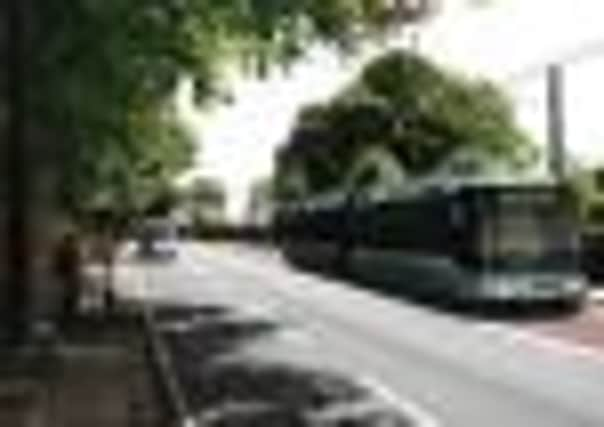Leeds trolleybus plans head for cash pothole


The Department for Transport (DfT) is to put a maximum of £173.5m into the project and the city council and Metro, West Yorkshire’s public transport authority, has agreed a total contribution of £57.1m.
With the cost of the scheme estimated at a total of £250.6m, a £20m gap needs to be plugged.
Advertisement
Hide AdAdvertisement
Hide AdCouncil and Metro officials will try to find extra sources of funding but should a shortfall still exist in 2016, when construction is due to begin, a further contribution is likely to come from the council’s capital spending programme, which supports major building and development projects.
A recent report to the council’s executive board said: “There is currently a funding gap which must be met from the promoters (the council and Metro), however, work will progress to seek to identify additional sources of funding to meet any shortfall.
“Should a shortfall still exist, there would be a call on the council’s capital programme resources and this would be required late 2016 at the earliest and most likely 2017-18 and 2018-19.”
Councillor James Lewis, Metro chairman, said he was not worried about the gap and outlined a number of ways it could be filled, including an increase in the value of the land that forms part of the local contribution or borrowing to be funded by trolleybus ticket income.
Advertisement
Hide AdAdvertisement
Hide AdHe added there was leeway in terms of design and procurement and the scheme “could well come under the £250m estimated cost”.
He maintained the current estimated shortfall was less than 10 per cent of the value of the whole scheme, adding: “All the figures have been through the Treasury, Department for Transport and the council’s approved processes. It has been accepted by all involved as an acceptable amount to be found.”
The board has agreed £1.2m can be spent to enable a Transport and Works Order to be submitted to Transport Secretary Patrick McLoughlin for powers to build and operate the system. A public inquiry is likely to be held to determine the order.
The Dft announced in July the scheme had achieved programme entry approval. It has two more hurdles to clear – conditional approval, when all the legal processes have been completed, and full approval, to be granted following the receipt of all tender prices but before contracts are awarded. The DfT’s £173.5m will be available following full approval.
Advertisement
Hide AdAdvertisement
Hide AdLeeds has been pursuing a modern rapid transit public transport system since the late 1980s. The original proposal was for a supertram system.
While many UK cities were given the go-ahead to introduce modern trams - Manchester, Edinburgh and Sheffield among them – the Leeds plan failed to attract Government backing.
As an alternative, the council and Metro turned to a trolleybus system, also known as new generation transport (NGT).
The report to the board said: “Subject to the statutory processes, the city is on the cusp of delivering the basis for a high quality transport system which can be added to, as happens elsewhere, as resources become available.”
Advertisement
Hide AdAdvertisement
Hide AdAnalysis has shown that NGT could generate about 4,000 long-term jobs, both in Leeds and the wider city region, and provide an economic boost of as much as £160m-a-year.
Two routes are currently planned.
The north route would run from Holt Park to the city centre, while the south route is due to link the city centre to Stourton. Major park-and-ride sites are planned at Stourton and Bodington.